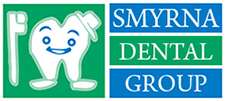What To Expect at Your Next Dental Exam
Welcome to our blog! Today, we're diving into the world of dental exams - those important check-ups that keep your smile shining bright. Whether you love or dread going to the dentist, it's crucial to understand what to expect during these appointments and why they are so vital for your oral health. So grab a seat, sit back, and let us guide you through everything you need to know about your next dental exam. Get ready for some pearly-white knowledge!
Importance of Regular Dental Exams
Regular dental exams are the cornerstone of good oral health. While brushing and flossing at home are essential, these habits alone cannot fully prevent or detect potential issues. That's where dental exams come in!
First and foremost, regular exams allow your dentist to thoroughly assess the state of your teeth and gums. They can spot early signs of tooth decay, gum disease, or other oral health problems that may not be obvious to you. By catching these issues early on, treatment becomes easier, less invasive, and more affordable.
During a dental exam, your dentist will also perform a thorough cleaning to remove plaque buildup and tartar that cannot be removed by regular brushing alone. This helps prevent cavities and gum disease from developing.
Additionally, dental exams provide an opportunity for professional advice on maintaining optimal oral hygiene practices specific to your needs. Your dentist can recommend improvements in brushing techniques or suggest additional tools like interdental brushes or mouthwashes tailored to address any concerns they identify.
Last but certainly not least, regular dental exams contribute greatly to overall health monitoring. Believe it or not, certain systemic conditions such as diabetes or vitamin deficiencies can manifest symptoms in the mouth first. Dentists are trained to recognize these red flags during their examinations.
So remember, folks: don't skip those important dental check-ups! They're key to keeping your smile healthy and ensuring long-term oral well-being!
What Happens During a Dental Exam?
During a dental exam, your dentist will perform a thorough evaluation of your oral health. This typically involves several steps to ensure that all aspects of your dental well-being are carefully assessed.
First, the dentist will review your medical and dental history. It's important to disclose any relevant information or changes in your health since your last visit. This allows the dentist to have a comprehensive understanding of any underlying conditions or medications that may impact your oral health.
Next, the dentist will examine your teeth and gums for signs of decay, gum disease, or other issues. They may use special tools like a mirror and probe to check for cavities or areas of concern.
X-rays are often taken during a dental exam as well. These images provide valuable insight into the hidden areas between teeth and beneath the gumline. X-rays can help detect problems such as tooth decay, impacted wisdom teeth, or bone loss.
The dentist will also evaluate your bite alignment and jaw joint function. They may ask you to bite down on different materials to assess how well everything is aligned.
Furthermore, an oral cancer screening is usually performed during a dental exam. The dentist will check for any abnormalities in the mouth, throat, tongue, lips, or surrounding tissues that could indicate early signs of oral cancer.
Professional cleaning (or prophylaxis) is typically done by a hygienist as part of the dental exam appointment. They remove plaque buildup and tartar from the surfaces of teeth using specialized instruments. This helps prevent tooth decay and gum disease while leaving you with fresh breath and clean-feeling teeth.
Overall, a routine dental exam plays an essential role in maintaining good oral health. It enables early detection, treatment, and prevention, which ultimately contributes towards overall well-being. So make sure you prioritize regular visits to keep those pearly whites shining bright!
Recommended Frequency for Dental Exams
How often should you go to the dentist for an exam? Well, the answer may vary depending on your individual oral health needs. In general, it is recommended to schedule a dental exam every six months. This allows your dentist to monitor and maintain your oral health effectively.
Regular dental exams are essential for several reasons. They help prevent potential problems before they become more serious and costly to treat. By visiting your dentist regularly, any issues can be identified early on and addressed promptly.
Routine dental exams allow for thorough cleanings that remove plaque buildup and tartar from hard-to-reach areas of your mouth. Even with diligent brushing and flossing at home, professional cleaning by a hygienist is necessary to achieve optimal oral hygiene.
Moreover, regular dental check-ups provide an opportunity for dentists to screen for signs of gum disease or other oral health conditions that may require further attention or treatment.
Additionally, if you have specific concerns or ongoing dental treatments such as braces or implants, your dentist may recommend more frequent visits tailored to your unique needs.
By adhering to the recommended frequency of dental exams, you can take proactive steps towards maintaining good oral health and preventing future complications. So don't forget: scheduling regular appointments with your dentist is crucial in achieving a healthy smile!
Conclusion
Regular dental exams are essential for maintaining good oral health. During these exams, your dentist will thoroughly examine your teeth and gums, check for any signs of decay or disease, and provide necessary treatments or recommendations.
By scheduling regular dental exams, you can catch potential problems early on and prevent them from escalating into more serious issues. Your dentist may also be able to detect early signs of other health conditions such as diabetes or heart disease.
So don't wait until you have a toothache or noticeable problem before visiting your dentist. Make it a priority to schedule regular dental exams and take proactive steps toward achieving optimal oral health.
Office Hours
MON - THU8:00 am - 5:00 pm
FRI - SUNClosed












